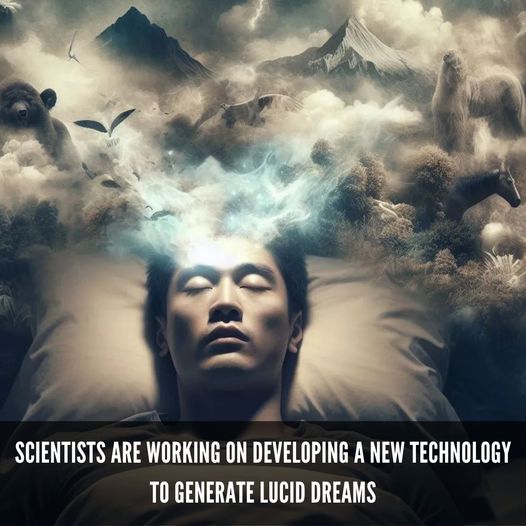
Lucid dreams are when you become aware and can control your own dream. Some people have them naturally, but others may need some help. A new tech startup, Prophetic, wants to make lucid dreams more accessible with a wearable device called Halo, reports vice.com.
Halo is a headband that uses ultrasound and machine learning to detect when you are in REM sleep, the stage of sleep when most dreams occur. It then sends signals to your brain to induce and stabilize lucid dreams. The device is expected to launch in 2025.
Prophetic’s founders, Eric Wollberg and Wesley Louis Berry III, are both avid lucid dreamers who see the potential benefits of this experience. They say lucid dreams can be fun, creative, spiritual, and therapeutic. They cite scientific research that suggests lucid dreams can help with PTSD, anxiety, mood, confidence, motor skills, and more.
“It’s an extraordinary thing to become aware in your own mind and in your own dreams; it’s a surreal and spiritual-esque experience,” said Wollberg, who has had lucid dreams since he was 12, in a call with Motherboard.
“Recreationally, it’s the ultimate VR experience. You can fly, you can make a building rise out of the ground, you can talk to dream characters, and you can explore.”
“The list of benefits of lucid dreaming is long,” noted Berry in the same call. “There’s everything from helping with PTSD, reducing anxiety, and improving mood, confidence, motor skills, and creativity. The benefits are really outstanding.”
To further explore these benefits, Prophetic has partnered with the Donders Institute, a neuroscience research center in the Netherlands. Together, they aim to collect the largest dataset of brain activity from lucid dreamers using EEG and fMRI scans.
They also want to test the effectiveness of transcranial focused ultrasound (TUS), a technology that can stimulate specific brain regions with sound waves.
TUS is one of the methods that Halo will use to trigger lucid dreams. The other is transcranial alternating current stimulation (tACS), which uses electrical currents to modulate brain waves. Both methods are non-invasive and have been shown to increase the chances of lucid dreaming in previous studies.
However, Prophetic acknowledges that there are still many unknowns and challenges in this field. For instance, how to ensure the safety and ethics of manipulating people’s dreams, how to personalize the device for different users, and how to measure the quality and impact of lucid dreams.
Prophetic hopes that Halo will not only be a consumer product, but also a tool for scientific discovery and personal growth. The company’s vision is to empower people to explore their own minds and unlock their full potential through lucid dreaming.
